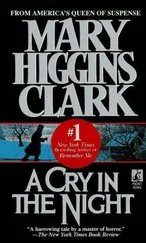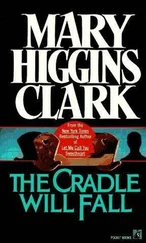At Union Square he saw his chance. The light was turning red but people were still scurrying across the street trying to beat the oncoming traffic. A bus was charging across Fourteenth Street heading for the bus stop. Farrell was at the edge of the curb.
In an instant Sammy was behind her and, with the bus only a few feet away, gave her a shove then watched in disbelief as she somehow managed to roll out from under the tires as, brakes screeching, the bus skidded in a useless attempt to stop. He knew the old lady standing next to him had seen him push Farrell and, trying not to panic, Sammy ducked his head as he hurried past her and headed downtown.
At the end of three blocks, he turned right and took off his gloves and dark glasses and pushed back the hood of his sweat jacket. Trying to look casual, he walked at a normal pace back toward his car. But when he got to where he could see it, he stared unbelieving at the sight of it, wheels clamped, being hoisted onto a police department carrier.
The meter. In his rush to follow Monica Farrell, he had forgotten to feed the meter. His impulse was to go and argue with the driver of the tow truck, but instead he forced himself to turn away and start walking home. I know they bring the cars to some dump near the West Side Highway, he thought, trying to stay focused. If that old lady talks to the cops about Farrell being pushed and describes me, I can’t show up in these clothes to claim the car…
He felt his forehead breaking into a sweat. If the old lady did talk to the cops and they took her seriously they might figure that someone was staking out the doctor, then follow up on my car being towed across the street from the hospital. Then if they look me up, they’ll find out that I’ve got a record. They might want to know what I was doing parked at the hospital and where I was when the meter ran out right around the time the doctor was pushed…
Stay calm. Stay calm. Sammy walked downtown to his Lower East Side apartment, and changed into a shirt, tie, sports jacket, slacks, and polished shoes. From his prepaid cell phone he called information and, after being savagely irritated by the computer voice droning, “I’ll pass you on to an operator,” obtained the number he needed.
A bored voice told him to be sure to have his license, insurance card, and registration and to bring cash in order to claim his automobile. Sammy gave his license number. “Is it there yet?”
“Yeah. It just came in.”
After twenty frustrating minutes in a cab crawling along the narrow streets of downtown Manhattan to West Thirty-eighth Street, Sammy was presenting his license to the clerk at the pound. “The insurance and registration are in the glove compartment,” he said, trying to sound friendly. “I was visiting a friend in the hospital and forgot about the meter.”
Should he have said that? Was the clerk looking at him as if he knew he was lying? Sammy was pretty sure the young cop was giving him a steely-eyed once-over. But maybe I’m just nervous, he thought, trying to comfort himself as he walked to his car to get the insurance card and registration. Finally he completed the paperwork, paid the fine, and was able to go.
He had driven barely a block before his cell phone rang. It was Doug Langdon. “Well, you botched that one,” Langdon said, his voice trembling with fury. “The whole city knows that an attractive young doctor was pushed in front of a bus and nearly lost her life. The description of you is pretty accurate, too. A bulky middle-aged guy in a dark sweat jacket. Did you give her your business card as well, by any chance?”
For some reason the panic in Langdon’s voice forced Sammy to calm himself down. He didn’t want Langdon to go off the deep end. “How many bulky middle-aged men are walking the streets of Manhattan in a dark sweat jacket?” he demanded, “I’ll tell you right now what the cops will think. If they do believe that old crow, they’ll think it’s one of those guys who didn’t take his medicine. How many of them go loopy and push people off the train tracks? So quit worrying. Your doctor used up her one good-luck charm tonight. The next one is mine.”

Barry Tucker left his partner, Dennis Flynn, in Renée Carter’s apartment to wait for a police technician to padlock the door. “That lady sure was careless with her jewelry,” Flynn observed. “There’s a lot of stuff that looks valuable scattered around in that tray on her dresser, and more in boxes in her closet.”
“You keep looking for anything that indicates next of kin,” Tucker told him. “And make a list of all the people you find in her daily appointment book. Then start with the men and check their addresses in the Manhattan phone book. See if one of them lives around here. I’m heading for that bar where Carter was supposed to meet the guy who may be the baby’s father.”
As he spoke he took a picture of Renée from its frame. “With any luck we may solve this one pretty fast.”
“You always hope that,” Flynn observed dryly.
“Dennis, this one has a kid involved, who’s going to end up in a foster home if we can’t find a relative willing to take her,” Barry Tucker reminded him.
“After what we heard from the babysitter, my guess is that the kid will be better off in a foster home than she was with the mother,” Flynn said quietly.
That remark stayed in Barry Tucker’s mind as he drove across town to the restaurant near Gracie Mansion where Renée Carter had been dropped off to meet the mystery man. He tried to imagine either one of his children alone in a hospital, with no relative or close friend to care for them. Not in a million years, he thought. If anything happened to Trish and me, both grandmothers, to say nothing of all three of Trish’s sisters, would be fighting for custody of the kids.
The restaurant turned out to be an English-style pub. The bar was directly inside the entrance, and Barry could see that the dining room beyond it held no more than a dozen tables. A neighborhood kind of place, he thought. I bet they get a lot of repeat customers. Let’s hope Carter was one of them. From what he could see, all the tables seemed to be taken, and most of the stools at the bar were occupied.
He walked to the end of the bar, waited until the bartender came to take his order, then slid his gold badge and a picture of Renée across the counter.
“Do you recognize this lady?” he asked.
The bartender’s eyes widened. “Yes, sure I do. That’s Renée Carter.”
“When was the last time she was here?”
“Night before last, Tuesday, around ten thirty, give or take ten minutes.”
“Was she alone?”
“She came in alone, but some guy was waiting for her. He pulled out a stool for her to sit here at the bar, but she said they should get a table.”
“What was her attitude toward the man she met?”
“Snippy.”
“Do you know who he is?”
“No. I don’t think he’s ever been here before.”
“What did he look like?”
“Late forties, early fifties. Dark hair. Really good-looking guy, and his clothes didn’t come off a pipe rack, I can tell you that.”
“What was his attitude toward Renée Carter?”
“Not happy. I could tell he was nervous. He polished off two scotches before she even got here.”
“So then they went to a table?”
“Yeah. Most of the tables were empty by then. We close the kitchen at ten. While they were still standing at the bar, he ordered two scotches and said something to her like, ‘I assume you still have a taste for single malt?’ ”
“What did she say?”
“She said something like, ‘I can’t afford single malt scotch anymore, but it’s clear you can.’ I mean, it sounded stupid coming from someone who was all dolled up like Renée Carter was.”
Читать дальше













